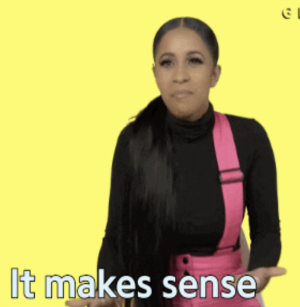Dan O’Neill’s Top 10 Rules for Academic Writing
Dan is a prolific writer, his last work was published in the journal Nature Sustainability. We have interviewed Dan in the past about the writing process. In this post Dan shares with us his top 10 writing tips.
Academic writing is a funny business. It’s not done to entertain, as in the case of fiction, but to communicate a set of ideas as carefully and unambiguously as possible. My suggestions for academic writing are unlikely to help you produce a best-solving novel, but they may help you publish a good journal article. Drumroll, please!
- Aim for clarity. Explain your ideas as clearly and simply as you can. Imagine that you’re explaining your findings to your grandmother, or a friend down at the pub. Avoid jargon and define any terms that your readers may not know.
- Work from an outline. Create a point-form outline of the ideas you want to cover in your article before you start writing. Although your plan may change as the article develops, an outline is a good place to start.
- Be aware of the 80/20 rule. Applied to writing, the 80/20 rules suggests that you can probably generate 80% of the content in 20% of the time. Focus on getting your ideas down on paper, even if it looks messy. Then go back and edit carefully. Do not try to write perfectly-referenced sentences in the first draft.
- Start in the middle. I personally have trouble motivating myself to write: a lot of coffee is required! I don’t particularly enjoy the process, so one of the things I try to do is make the process as easy on myself as possible. Start writing whichever section you are most comfortable with. For me, as a quantitative researcher, this section is generally not the Introduction, but more likely the Results, where I am simply describing what I have found.
- Don’t write about things you don’t quite understand. Muddled writing is a symptom of muddled thinking. If you don’t understand what you’ve written, then it’s unlikely your audience will do much better. In general, you should know more about the subject than what you actually write, not less!
- Pay attention to paragraphs. Discuss only one idea per paragraph, and keep paragraphs relatively short (I rarely write paragraphs that are longer than 10 lines). The first sentence of each paragraph should tell the reader what the paragraph is about. You should be able to follow an article simply by reading the first sentence of each paragraph.
- Pay attention to sentences. Keep sentences short and to the point. Avoid run-on sentences and avoid sentence fragments. If a sentence is longer than three lines, it’s probably too long.
- Write in the active voice. Think about who is doing the action in the sentence, and put them (or it) at the start. Avoid using the passive voice (e.g. “It has been demonstrated by some experts that…”). Instead, say “Smith and Jones (2012) demonstrate that…”
- Avoid vague pronouns. Words like “this” and “it” can spell trouble. Be careful every time you use them. Ensure that “this” is followed by the thing it is describing. Don’t say: “I conducted the experiment. This made Jim angry.” Instead, say: “I conducted the experiment. My findings made Jim angry.”
- Edit by cutting and pasting. Cutting down a 12,000-word draft to an 8,000-word article can be challenging. It’s not always clear what should stay and what should go, and sometimes you need to remove material that you’ve become attached to. Instead of consigning text to oblivion, cut and paste it into another file. The psychology is easier, and you’ll become a better editor in the process.
Which of these tips was the most helpful for your work? Do you have additional tips that work for you? Let us know. Leave your comments below!














